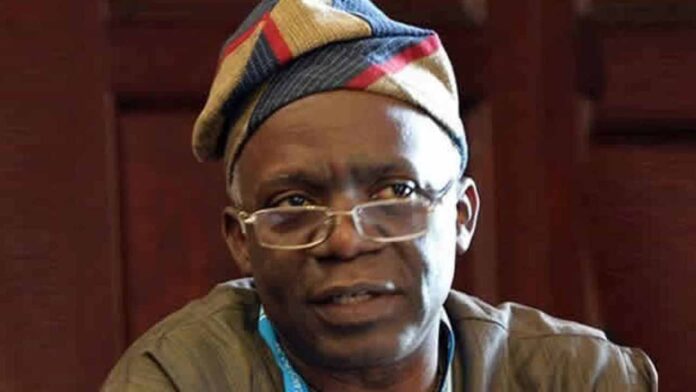Ahead the amendment of the 1999 constitution for Creation of state police, human rights lawyer, Femi Falana, SAN, on Friday warned against misuse of police apparatus by governors to intimidate political opponents.
Falana, a Senior Advocate of Nigeria (SAN), was a guest of Inside Sources With Laolu Akande aired on Channels Television on Friday.
He said at the moment, policing has been decentralised in the country as residential estates and communities have private security outfits with personnel armed with different weapons guarding inhabitants of such communities.
Falana described state police as an idea whose time has come but said jurisdictions must be clearly defined to prevent inter-rivalry and more clashes between security agents, adding that state police must be a people-police service and not a government-centred one.
He said one federal police force is not really antithetical to federalism as the success of the system depends on its the management. “Unfortunately, our governors have allowed the Nigeria Police Force to become the Federal Government Police Force hence the demand for state police,” he said.
“Under Section 216 of the Constitution, the President of the Republic cannot appoint or remove an Inspector General of Police without consulting the Nigeria Police Council.”
“In that 39-member body, 36 of them are chief executives of states. It’s a council where the members should discuss the number of police personnel should be in every state, how the police should be funded and how the police should be managed and administered. But what has happened?”
He said though there are other regular security council meetings in the country, the Nigeria Police Council has not been meeting. “We must go back to the provisions of the Constitution. It’s not unusual in a federation to have federal government police and state police but again, we have to go back to the drawing table and finetune our policies before we have state police. We must assure our people.
“There are governors in Nigeria that will turn state police into an instrument of oppression because even right now, the federal police is turned into an instrument of oppression.
“So, we must agree that in a Federation, every tier of government, every federating unit should be able to enforce its own laws, with its own security apparatus but you must guarantee that there will be no intimidation or oppression of political opponents, either by the federal government police, state police or even local government police.
“Right now, we deceive ourselves, we already have decentralisation of police; every community, every estate all have their own private security arrangement and majority of them are armed.”
Social commentaries on state police continue to dominate public discourse with some governors and regional socio-political groups like Afenifere and Ohanaeze Ndigbo saying it would curb menacing trend of kidnapping, banditry and sundry crimes.
Already, there are state-owned security outfits in about 23 states like the Civilian Joint Task Force in Borno State, the Amotekun Corps in the South-West geopolitical zone, Ebube Agu in the South-East, Benue Guards in the North Central State, Community Protection Guards in Zamfara, Community Watch Corps in Katsina, the Neighbourhood Watch in Plateau, state-backed vigilante outfits in Niger and Bauchi, amongst others.
However, these outfits have been handicapped in their operations due to a number of factors including lack of license to bear assault rifles and superior weapons to confront deadly insurgents and criminals but governors are upbeat that with a constitutional backing, these outfits will live up to their full potential.
To this end, President Bola Tinubu and governors of the 36 states mid-February, agreed on state police as a method to curb the escalating security challenges in the country.
About a month later, 16 governors submitted their reports to the National Economic Council (NEC), expressing their support for the creation of state police and the amendment of the 1999 Constitution to allow for same.
The decision of the remaining 20 governors are still being expected.










